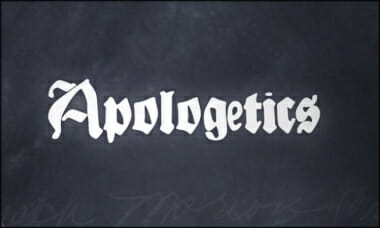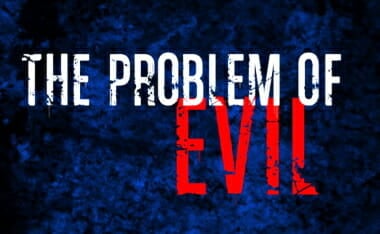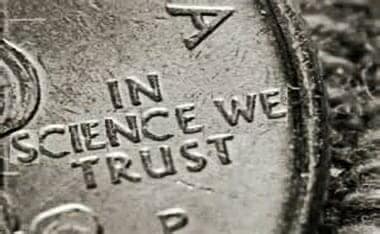This is an old conversation from many years ago with a Mormon woman who read some of my chapter in my book. This is merely a cut-n-paste (with some slight edits for ease of reading) I kept from the forum.
My moniker is the “gears,” Johnna (the Mormon) is the “person.” And LDS, Latter Day Saints… are synonyms for Mormons.
Enjoy.
Johnna,
Hope your busy week was productive. I am coming up to crunch time myself here soon with this round of classes.
Johnna said:
I do admit there are fellow saints who look at it this way. My husband is one of them.
I wish here to applaud Johnna, she is at least admitting that many “Saints” view Heavenly Father’s nature this way.
- Thank you Johnna for being honest.
For the reader to continue they must understand what Johnna just did. Often times when Mormon Elders come to your door they will shy away from this because you are not initiated into the Latter Day Saint Church. And so, I will define the LDS “god” so the conversation is fully understood. I will pull some from my chapter, but first start out with a layman’s understanding of the Mormon “god,” and then get into the weeds a bit.
Defining the LDS “god”
- Jesus of LDS (Mormons): Jesus was the first begotten son by Heavenly Father and Mother (one of many mothers, but presumably this one is the most important. Polygamy is practiced in the Mormon top-tear heaven), Lucifer was also born of a sexual act in heaven, so Jesus and Satan are literally brothers – as we are all brothers and sisters, albeit most likely half-brother or sister. During the judgment period Elohim, Jesus, and Joseph Smith will judge every Mormon and according to his works. (I say his, because in Mormon theology women are consecrated to a Mormon man, so her salvation depends on his good works. If he does not make it, in heaven she may become one of the many wives of a Mormon male that did make the cut, so-to-speak.) Again, Jesus had to become exalted Himself to also attain the best Heaven so he to can be a god of his own world. This godhood exaltation goes back to infinity in Mormon theology. So Heavenly Father was once a man on a planet much like our, and he too had to attain exultation, he had a father, that father had a father, and so on. (Me)
Okay, here are some excerpts from my chapter further defining “god” by LDS leaders and Christian Apologists defining “god” more… first up is a seminary level Textbook for Mormon’s entering marriage via the Temple[1]:
“By definition, exaltation includes the ability to procreate the family unit throughout eternity. This our Father in heaven has power to do. His marriage partner is our mother in heaven. We are their spirit children, born to them in the bonds of celestial marriage.”
[….]
- GOD WAS ONCE A MORTAL MAN
-
- (1-2) He Lived on an Earth like Our Own
- (1-3) He Experienced Conditions Similar to Our Own and Advanced Step by Step
- GOD IS NOW AN EXALTED MAN WITH POWERS OF ETERNAL INCREASE
-
- (1-4) Our Father in Heaven Lives in an Exalted Marriage Relationship
- (1-5) We Are Literal Children of God, Part of His Family Unit
In other words, one with an elementary idea of the Judeo-Christian God can start to see a line of separation between the Christian God and the LDS “god.” Continuing with another LDS source:
The Father and The Son: A Doctrinal Exposition by The First Presidency and The Twelve — The scriptures plainly and repeatedly affirm that God is the Creator of the earth and the heavens and all things that in them are. In the sense so expressed, the Creator is an Organizer. God created the earth as an organized sphere; but He certainly did not create, in the sense of bringing into primal existence, the ultimate elements of the materials of which the earth consists, for “the elements are eternal” (D. & C. 93:33) [2]
A friend comments on the issue:
The Latter-day Saint god lacks eternal omniscience, aseity, supremacy, sovereignty, and omnipotence…. The god of Mormonism does not need to exist for the intelligibility of human experience. He cannot supply the transcendental conditions that are needed for the laws of logic, love, and morality. Van Til contended that “the general precedes the particular” in our reality. This implies that the particular exalted man of Mormon theology cannot supply the general and universal realities that must be, for the necessary and unavoidable transcendental conditions listed above. A restricted and fixed exalted man cannot be the indispensable foundation for the unity of experience and knowledge.[3] Richard Abanes points out some of these ideas in his exhaustive history of the Mormon Church: …there is a “limitless” amount of cosmic spirit matter known as “intelligence,” out of which Elohim and Heavenly Mother made countless spirit babies via celestial sex. Their ethereal unions somehow siphoned off portions of that great ocean of cosmic “intelligence” and clothed each of these portions with a spirit body. The resulting offspring not only bore their image, but had resident within them the potential for godhood, an attribute of Heavenly Father and Mother…. Countless souls, say LDS leaders, have already attained godhood. Orson Pratt theorized: “If we should take a million of worlds like this and number their particles, we should find that there are more Gods than there are particles of matter in those worlds.”i Brigham Young, much less willing to calculate the number of gods, admitted: “How many Gods there are, I do not know. But there never was a time when there were not Gods.”ii These teachings inspired the popular Mormons couplet: “As man is, God once was; as God is, man may become.”iii [4] To make this point further, Francis Beckwith mentions that “[s]ince [g]od the Father of Mormonism was himself organized (or spirit-birthed) by his [g]od, who himself is the offspring of yet another [g]od, and so on ad infinitum, Mormon theology therefore implies that the [g]od over this world is a contingent being[5] in an infinite lineage of gods.”[6] Concurring, Mormon theologian B. H. Roberts, a member of the First Council of Seventy, writes: Not even God may place himself beyond the boundary of space: nor on the outside of duration. Nor is it conceivable to human thought he can create space, or annihilate matter. These are things that limit even God’s omnipotence. What then, is meant by the ascription of the attribute of Omnipotence to God? Simply that all that may or can be done by power conditioned by other eternal existences—duration, space, matter, truth, justice—God can do. But even he may not act out of harmony with the other eternal existences which condition or limit him.[7] This is very important, because it makes the god Mormons here on this world worship contingent on other beings and parameters for his being and godhood, which has deep ethical consequences: Hence, when a Mormon says that god is omnipresent he is asserting that god’s influence, power, and knowledge is all-pervasive, but that the focal point of God’s being (that is, his body) exists at a particular place in time and space. Because the Mormons do not believe that the universe is contingent upon God to sustain its continued existence,[8] there is no need for the Mormons to defend the classical view of omnipresence…. Since God Himself came into being as God (although he existed in some state eternally), He cannot be the source and sanction of values. He Himself obeys laws and affirmed values for whose existence he is not responsible.[9] Footnotes [1] Achieving Celestial Marriage (Salt Lake City, UT: Church Educational System Department of Seminaries and Institutes of Religion, 1998), 129. I will attach this entire page in the appendix. [2] James E. Talmage, A Study of the Articles of Faith (Salt Lake City, UT: The Church of Jesus Christ of Latter-day Saints, 1959) 465-466. (Emphasis added.) [3] Mike Robinson, Presuppositional Apologetics Examines Mormonism: How Van Til’s Apologetic Refutes Mormon Theology (Denver, CO: Outskirts Press, 2007), 71-72. [4] Richard Abanes, One Nation Under Gods: A History of the Mormon Church (New York, NY: Four Walls Eight Windows, 2002), 285, 286-287. i Orson Pratt, February 18, 1855, Journal of Discourses (Liverpool, F.D. Richards, 1855; lithographed reprint of original edition, 1966), vol. 2, 345. In The Seer, Pratt wrote: “We were begotten by our Father in Heaven; the person of our Father in Heaven was begotten on a previous heavenly world by His Father; and again He was begotten by a still more ancient Father, and so on, from generation to generation, from one heavenly world to another still more ancient, until our minds are wearied and lost in the multiplicity of generations and successive worlds, and as a last resort, we wonder in our minds, how far back the genealogy extends, and how the first world was formed, and the first Father was begotten” (Orson Pratt, “The Pre-Existence of Man,” The Seer, September 1853, vol. 1, no. 9, 132; cf. Orson Pratt, “The Pre-Existence of Man,” The Seer, February, 1853, vol. I, no. 2, 23-24). ii Brigham Young, October 8, 1859, Journal of Discourses (Liverpool: Amass Lyman, 1860; lithographed reprint of original edition, 1966), vol. 7, 333. iii Lorenzo Snow, MS, vol. 54, 404. Quoted in Hunter, 105-106. [5] Concept of contingent being: Contingent beings have their explanation or sufficient reason in something other than themselves. A contingent being is anything that depends on something else for its existence. Ronald H. Nash, Faith & Reason: Searching for a Rational Faith (Grand Rapids, MI: Zondervan, 1988), 127. [6] Francis J. Beckwith, Carl Mosser, and Paul Owen, gen.ed. The New Mormon Challenge: Responding to the Latest Defenses of a Fast-Growing Movement (Grand Rapids, MI: Zondervan, 2002), 224. [7] B.H. Roberts, Seventy’s Course in Theology: Third and Fourth Year (Salt Lake City, UT: Caxton Press, 1910), 4:70; quoted in The New Mormon Challenge, 225; [B.H. Roberts] added that “even [God] may not act out of harmony with the other external existences [such as duration, space, matter, truth, justice] which condition or limit him. “ Mormon theologian John Widtsoe maintains that belief in creation out of nothing does nothing but cause confusion: “Much inconsistency of thought has come from the notion that things may be derived from an immaterial state, that is, from nothingness.” In addition to this assertion, Widtsoe asserts that God cannot create matter [out of nothing] nor can he destroy it: “God, possessing the supreme intelligence of the universe, can cause energy in accomplishing his ends, but create it, or destroy it, he cannot.” The sum of matter and energy, whatever their form, always remains the same. The New Mormon Challenge, 104, [see fn#6]. [8] The Bible has a different view on this, matter, let’s read from Colossians 1:16-17, first from the NASB, then from the Message Bible: For by Him all things were created, both in the heavens and on earth, visible and invisible, whether thrones or dominions or rulers or authorities—all things have been created through Him and for Him. He is before all things, and in Him all things hold together. New American Standard Bible: 1995 Update (LaHabra, CA: The Lockman Foundation, 1995); We look at this Son and see the God who cannot be seen. We look at this Son and see God’s original purpose in everything created. For everything, absolutely everything, above and below, visible and invisible, rank after rank after rank of angels—everything got started in him and finds its purpose in him. He was there before any of it came into existence and holds it all together right up to this moment. And when it comes to the church, he organizes and holds it together, like a head does a body. Eugene H Peterson, The Message: The Bible in Contemporary Language (Colorado Springs, CO: NavPress, 2002). [9] Francis J. Beckwith and Stephen E. Parrish, The Mormon Concept of God: A Philosophical Analysis (Lewiston, NY: Edwin Mellen Press, 1991), 43, 44. (Emphasis added.)
I don’t know if this clears up the defining aspect of the LDS “god,” but this is what Johnna is referencing as believing. Publicly! Not trying to obfuscate their understanding to a non-Mormon.
Continuing w/Convo
I may add here that she also admits that her husband thinks this way as well, she didn’t need to share this private nugget with us, but she chose to, thanks again. Remember (speaking to the reader), it really doesn’t matter what Johnna thinks on the matter, her “goddess-hood” (i.e., salvation to the highest LDS heaven — or — she will be sealed to another LDS man/god she has never met) isn’t based at all on her thoughts on the matter. It is based entirely upon what her husband believes. That’s the bottom line.
I do believe that God (the Father, and the Son) are co-eternal with matter. Actually, I believe in some sense, as a child of God, I am co-eternal with matter, and so are you.
We would never reach an end of these historical events. In other words, you would not be “here” right now conversing about this matter. To extend my thinking on the possibility of these “gods” really evolving from this more base “eternal matter” are these quotes by Marxists philosophers showing Mormonism has more in common with atheistic dialectical materialism:
~ V.I. Lenin, Collected Works, vol. 14, 262. Found in Marxist-Leninist theory: The Fundamentals of Marxist-Leninist Philosophy (trans. from the Russian by Robert Daglish; Moscow, U.S.S.R: Progress Publishers, 1974), 76. ~ Ibid, 280-81. Found in, Ibid, 74-75. ~ Ibid., 175. Found in, Ibid, 85-86. ~ Gustav A. Wetter, Dialectical Materialism: A Historical and Systematic Survey of the Philosophy in the Soviet Union (trans. from the German by Peter Heath; New York, NY: Frederick A. Prager, 1958), 436. ~ Ibid., 292. ~ Alexander Spirkin, Dialectical Materialism (trans. from the Russian by Robert Daglish; Moscow, U.S.S.R: Progress Publishers, 1983), 77-78. ~ Ibid., 81-82.
Again, all this is to say is that Dialectical Materialism/Marxism has more in common with Mormon theology/philosophy than Mormon theology/philosophy has in common with Christian theology/philosophy. Both say matter is eternal. Both say consciousness came from this eternal state. Both say you can move through a thesis/antithesis to a synthesis. Both say this “evolving” never ends – and note the Mormon “god” continues to accumulate knowledge.
Johnna said:
Of course, I continue to consider myself Christian, and I certainly don’t consider myself an atheist.
An atheist could adopt a similar view in that evolution to a state where control of matter in a godlike fashion would be possible. Many naturalists hold to Eatern metaphysics, who have a similar view of matter being eternal. At this point I merely responded with an adapted excerpt from chapter one of Bill McKeever and Eric Johnson’s book, Questions to Ask Your Mormon Friend: Effective Ways to Challenge a Mormon’s Arguments Without Being Offensive (Minneapolis, MN: Bethany House, 1994):
Are They (LDS) Christians?
…The twelfth Mormon President Spencer W. Kimball said:
Latter-day Saints are true Christians. We cannot understand how anyone could question our being Christians. It would certainly be a reflection upon anyone who would say such a thing, because if they attended even one session of any meeting of this church, they would come to realize that every prayer and every song and every sermon is centered in the Lord Jesus Christ. We are the true followers of Jesus Christ; and we hope the world will finally come to the conclusion that we are Christians, if there are any in the world. (Edward L. Kimball, ed., The Teachings of Spencer W. Kimball, p. 434).
Mormon Apostle Bruce McConkie stated:
Mormonism is Christianity; Christianity is Mormonism; they are one and the same, and they are not to be distinguished from each other in the minutest detail…. Mormons are true Christians; their worship is the pure, unadulterated Christianity authored by Christ and accepted by Peter, James, and John and all the ancient saints. (Bruce R. McConkie, Mormon Doctrine, p. 513)
Rex Lee, the president of LDS-owned Brigham Young University, felt that it was “ridiculous” to not consider Mormons as Christians. He added:
I assume that qualification as a Christian turns mainly on belief in Christ. Mormons not only qualify as Christians under that definition, but they have also given broader meaning to the definition itself. (Rex Lee, What Do Mormons Believe?, p. 19)
The LDS Church has been striving in recent years to gain acceptance as a Christian religion. Although the LDS Church has been very successful at polishing its image, it has never backed off from its many heretical doctrines, which distinguish it from Biblical Christianity. While many Mormons claim that they should also be entitled to the name “Christian,” many of these same Mormons would be equally offended in Bible-believing Christians insisted on being called “Mormons.”
>>>>>>>>>>>
Imagine the Mormons’ reaction to the following statement:
I’m a Mormon but I don’t believe Joseph Smith was a true prophet of God. I’m a Mormon but I don’t believe that God was once a man or that men can become gods. I’m a Mormon but I don’t believe the Mormon Church is the only true church or that we need human prophets to guide the church. I’m a Mormon but I don’t believe the Book of Mormon is the Word of God. I’m a Mormon but I don’t believe temples are necessary or that couples can be married for eternity.
A knowledgeable Latter-day Saint would defy that such a person was, in fact, a true Mormon. why? Because this person who claims to be Mormon denies the very doctrines that make Mormons what they are. At the same time, however, a Mormon who claims to be Christian denies the very doctrines that make Christians what they are.
Indeed, Mormonism denies or distorts the basic tenants of Biblical Christianity. The two religions are incompatible. The areas of difference include the (1) doctrine of God, (2) the basis for authority, and the (3) idea of salvation for mankind.
Brigham Young University professors Daniel C. Peterson and Stephen D. Ricks ask “anti-Mormons” to refrain from calling Mormonism a cult. They ask that “more neutral terminology [be used], such as ‘religious movement,’ ‘religious group,’ or ‘church.’” I would do this, but in return I would ask the Mormon Church to quit attempting to use the name “Christian” to describe its “religious movement.”
Unlike many contemporary Mormons who desire to have equal status within Christianity, many LDS leaders have gone out of their way to deride these same Christian churches. Throughout the history of the LDS Church, its leaders have continually taught that Mormonism is far superior to the Christian denominations.
Joseph Smith, Jr., the founder of Mormonism, made the first attack on Christianity when he claimed to have asked God, in 1820, which of all the churches was correct. He was answered that “I must join none of them, for they were all wrong; and the Personage who addressed me said that all their creeds were an abomination in His sight; that those professors were all corrupt…” (Joseph Smith’s Testimony, 1:13).
According to Smith, Christianity was not in need of reformation. Rather, its corruption was so severe that a complete restoration was necessary. Drs. Peterson and Ricks attempted to downplay the severity of Christianity’s “depravity” by claiming that Smith merely referred to the local churches at the time of his youth. They write:
What the Lord told Joseph Smith in the grove was that the churches and creeds of 1820 were defective and distorted by error. He did not say that they were entirely and utterly wrong (since they preserved much truth), nor did he say that each and every Christian church would always be wrong…. He did not say that Christianity, as such, is false. There is nothing logically wrong with saying that the churches of 1820 were incorrect on many important issues (“corrupt”), and then saying that The Church of Jesus Christ of Latter-day Saints (organized in 1830) is true (Peterson and Ricks, Offenders for a Word, pp. 170-171).
Was Smith really referring only to the churches of 1820? To draw such a conclusion undermines the very existence of the LDS Church as well as goes against the pronounced statements of many Mormon leaders. Contrary to what these professors claim, Bruce McConkie seems to be more consistent with Mormonism’s overall attack on Christianity. Following a quotation of the Athanasian Creed, he concluded:
Is it any wonder that the Lord of heaven, as He stood by His Father’s side on that glorious day in 1820, speaking of all the churches in all Christendom, told young Joseph “that all their creeds were an abomination in his sight”? (McConkie, The Promised Messiah, p. 117, [emphasis mine])
What Smith supposedly was told by God – that there could only be one true church upon the earth – is supported by the Book of Mormon itself. It reads:
And he said unto me: Behold there are save two churches only; the one is the church of the Lamb of God, and the other is the church of the devil; wherefore, whoso belongeth not to the church of the Lamb of God belongeth to that great church, which is the mother of abominations; and she is the whore of all the earth ( Nephi 14:10).
McConkie described the “church of the devil” when he wrote:
What is the church of the devil in our day, and where is the seat of her power?…. It is all of the systems, both Christian and non-Christian, that perverted the pure and perfect gospel…. It is communism; it is Islam; it is Buddhism; it is modern Christianity in all it parts. It is Germany under Hitler, Russia under Stalin, and Italy under Mussolini (McConkie, The Millennial Messiah, pp. 54-55, [emphasis mine]).
Doctrines and Covenants 1:30 confirms this idea of exclusivity when it says that smith’s restored church is “the only true and living church upon the face of the whole earth, with which I, the Lord, am well pleased….” Expounding on the idea that only two churches exist – the Church of the Lamb and the Church of Babylon – George Q. Cannon, a former member of the LDS First Presidency, said:
The various organizations which are called churches throughout Christendom, though differing in their creeds and organizations, have one common origin. They all belong to Babylon. God is not the founder of them, yet there are many sincere people who belong to them. These Elders of the Church are commanded to warn, and they commanded to gather out. The Spirit of the Lord moves upon the people who will listen to His servants to leave Babylon and join the Church of the Lamb (George Q. Cannon, Gospel Truth, p. 324, [emphasis mine]).
As indicated by the pretense of his statement, Cannon believed any non-LDS Church is part of Babylon or, as the Book of Mormon puts it, “the church of the devil.”
Christians and Mormons may believe in Christ’s literal resurrection, but Christians do not believe that Jesus went to Americas after His resurrection, nor that His resurrection merely paves the way for men to be resurrected (earlier post on salvation); they do not hold that Christ’s birth was a result of God the Father having sexual relations with Mary; nor do Christians believe that Jesus is a created being who was the spirit-brother of Lucifer.
Christians have never worshipped a God who, as the offspring of another God, became a mortal man and eventually attained godhood. Thay have also never worshipped a being who resides near a planet called Kolob.
Peterson and Ricks write:
At least until recently, Mormons have thought of conservative Christians as, in many ways, their allies…. Most Latter-day Saints can only shake their heads, therefore, at the claim that Mormonism is not Christian (Offenders for a Word, p. 57)
Despite the arguments made by these writers, Gordon B. Hinkly, first counselor to LDS President Ezra Taft Benson, disagreed that the differences are minor. Speaking of the uniqueness of his church while classifying it as Christian, he wrote the following in an LDS Church tract:
They [Mormons] are generally classed as Protestants, since they are not Catholics. Actually they are no closer to Protestantism than they are to Catholicism. Neither historically nor on the basis of modern association, theology, or practice, can they be grouped with either…. Suffice it to say that its theology, it organization, and its practices are in many respects entirely unique among today’s Christian denominations (What of the Mormons?, p. 2)
Mormon leaders since Joseph Smith’s day have continually emphasized the differences, not the similarities, between Mormonism and Christianity. A Christian who is approached by a Mormon who says Mormonism is “just the same” as the historical Biblical Christianity needs to realize that this Mormon either does not know Mormonism or does not know the tenants of the Christian faith. As Clansman (a Mormon I debated on this particular web site where I posted this response) and others have consistently shown.
- That an actual infinite is possible;
- That there is an infinite regress of gods;
- The universe and gods exist co-eternally;
- That Jesus death on the cross was only for Adams sin;
- That Jesus is a god (one of an infinite), not God;
- That God didn’t create the space-time continuum;
- That any Spirit child could have done what Jesus did if he advanced as quickly as Jesus did. . . (in fact there could be a Jesus up there right now that has been exulted before getting his physical body, like Jesus did);
- That blacks were cursed spirit children who stayed neutral in the heavenly (Kolobly) war;
- That blacks will become white in heaven/Kolob, or a planet/heaven of their own;
- That Joseph Smith and others said ALL other churches were corrupt;
- That Joseph Smith has multiple First Vision accounts;
- That Joseph Smith used occultic practices to translate the Book of Mormon;
- That he had many, many wives;
- That LDS have added Scripture;
- That Brigham Young ordered the deaths of innocents;
- That Brigham Young had many, many wives;
- That Jesus had many, many wives (at least according to LDS);
- That the Book of Mormon claims to be a historical book yet not one iota of evidence for it can be found;
- That Heavenly Father has many, many wives (that yes, he screws for eternity, the LDS and Islam have something in common – also occult connections as well);
- That god, Heavenly Father, was once a man on a planet that may have owned a 7-11 type business and have been unfaithful to his wife before being exulted and following a LDS like path to it – exultation/salvation;
- That Heavenly Father had a Heavenly Father and Heavenly Mother who were also once human;
- On, and On, and On, and On – ad infinitum!



















